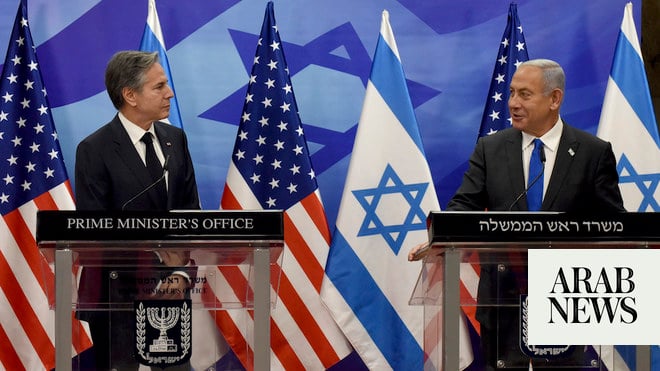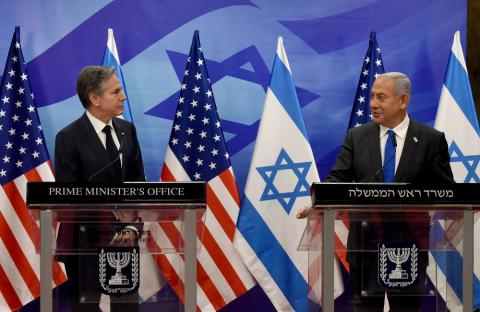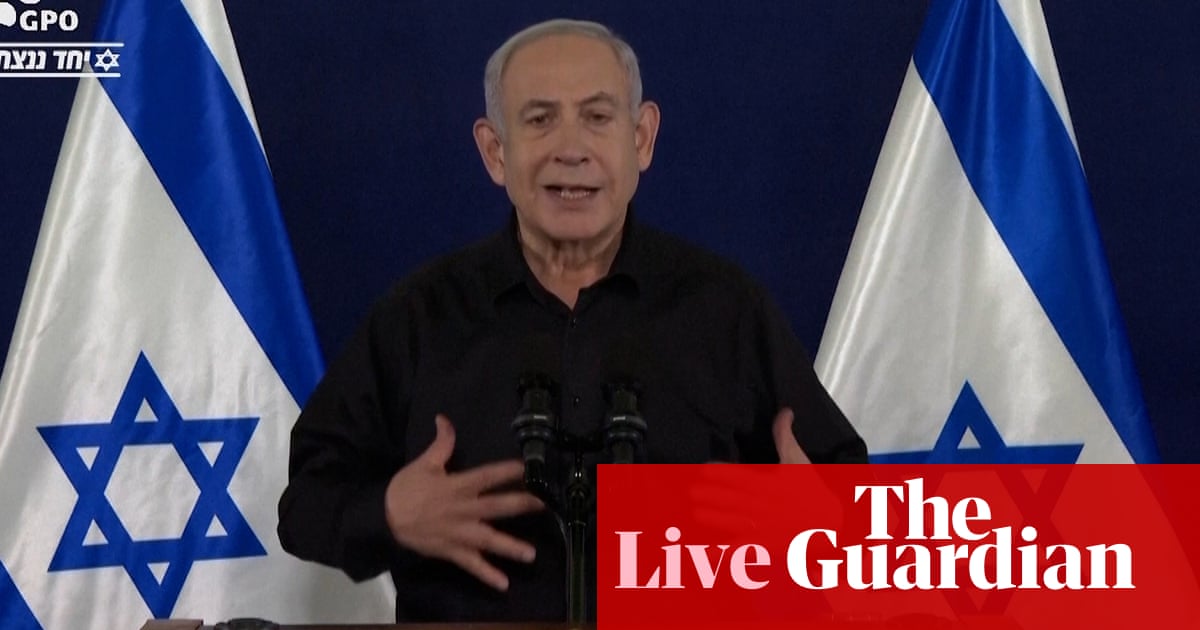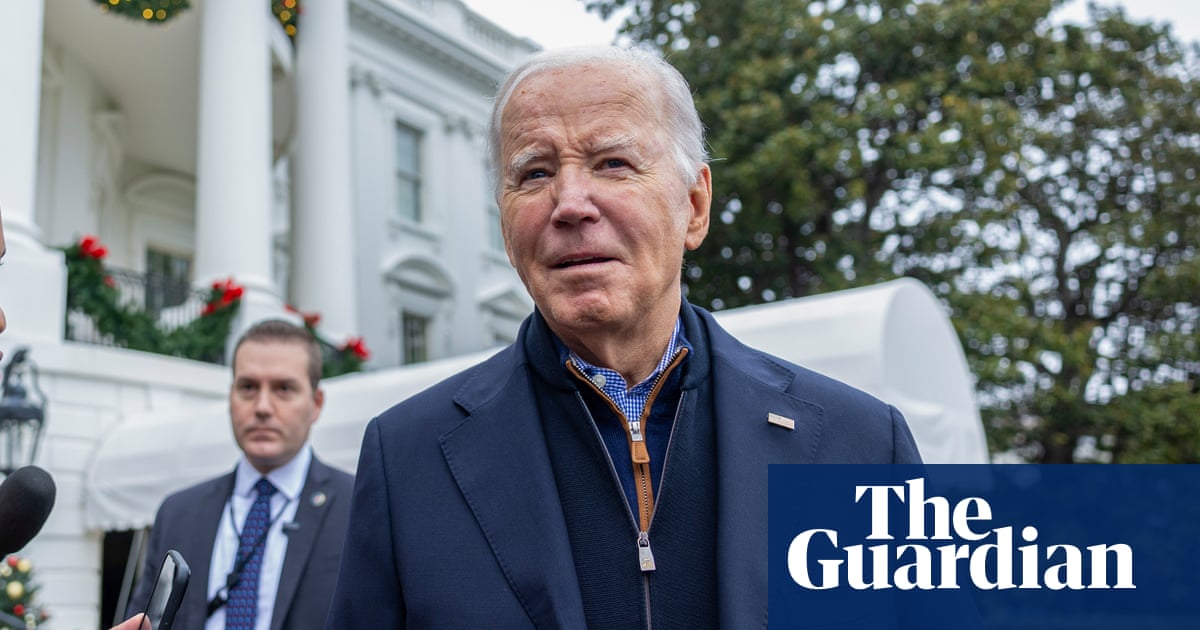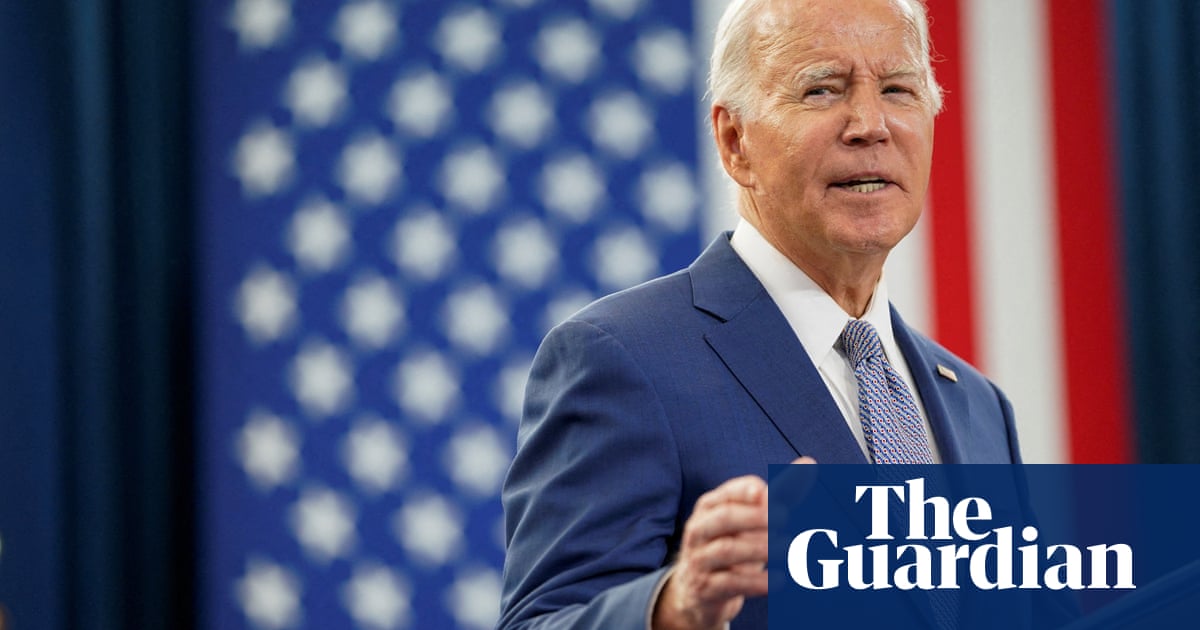
Joe Biden has said the creation of an independent state for Palestinians was still possible while Benjamin Netanyahu was still in office, following a call with the Israeli prime minister on Friday.
The US president spoke to Netanyahu for the first time in nearly a month about differences over a future Palestinian state, as well as Israel’s ongoing offensive in Gaza, where the Palestinian death toll is approaching 25,000, according to local health authorities.
Early on Saturday, witnesses reported further Israeli bombardment on Khan Younis, the largest city in Gaza’s south, although Palestinian media also reported intense fire around Jabalia in the north.
The leaders’ call came a day after Netanyahu said in a televised press conference in Israel that he had told US officials in plain terms that he will not support a Palestinian state as part of any postwar plan.
The leaders spoke frequently in the first weeks of the war. But their 30- to 40-minute call on Friday was their first conversation since 23 December.
Officials in the US, which has offered staunch support for Israel throughout the conflict, have sought to play down increasingly deep rifts over potential scenarios for the reconstruction and governance of Gaza after the war’s end.
There have been widespread media reports that the Biden administration has reached the conclusion that the departure from office of the veteran Israeli leader is essential to their plans for Gaza and the region.
Biden, for his part, in Friday’s call reaffirmed his commitment to work toward helping the Palestinians move toward statehood. Asked if a two-state solution was impossible while Netanyahu was still in office, Biden said: “No, it’s not.”
Israel has so far ruled out calls to allow the internationally recognised Palestinian Authority to govern both Gaza and the occupied West Bank – Washington’s preferred option – and instead suggested some form of governance involving local powerbrokers or clans, with the Israel Defence Forces playing a significant supervisory role.
The US president said Netanyahu was not opposed to all two-state solutions, and there were a number of types possible.
During a trip to Israel earlier this month, secretary of state Anthony Blinken said Arab leaders across the Middle East were ready to help with the reconstruction of Gaza, which has sustained massive destruction during the war, but only “through a regional approach that includes a pathway to a Palestinian state”.
White House spokesperson John Kirby told reporters that Biden had been trying to schedule the Netanyahu call “for quite a bit of time” and denied it came in response to the Israeli prime minister’s comment on Thursday saying he objected to Palestinian statehood that did not guarantee Israel’s security.
The prime minister’s latest rejection of Biden’s push for a Palestinian state came after Blinken this week said at the World Economic Forum in Davos that Israel and its Middle East neighbours had “a profound opportunity” to solve the generational Israel-Palestinian conflict. Asked if he thought Netanyahu was up to making the most of the moment, Blinken demurred.
“Look, these are decisions for Israelis to make,” Blinken said. “This is a profound decision for the country as a whole to make: What direction does it want to take? Does it see – can it seize – the opportunity that we believe is there?”
Speaking to reporters after a meeting with US mayors, Biden said Netanyahu was not opposed to all two-state solutions, and there were a number of types possible.
Biden was asked if he would reconsider conditions on Israel aid given Netanyahu’s comments rejecting a two-state solution. “I think we’ll be able to work something out ... I think there’s ways in which this could work,” he said.
Netanyahu is under increasing domestic pressure as concern grows in Israel at the apparent lack of progress towards the “total victory” over Hamas that he has said is the aim of the campaign. Polls show support for Netanyahu’s Likud party has cratered, reinforcing the prime minister’s dependence on far-right coalition members.
On Thursday, Gadi Eisenkot, a former chief of staff of the Israel Defence Forces, launched a blistering attack on Netanyahu’s handling of the campaign against Hamas and called for a ceasefire deal to free the 132 remaining hostages held by Hamas, some of whom are thought to have been killed during the war.
Biden and Netanyahu discussed efforts to return the hostages, as well as Israel’s shift to more “targeted” operations in Gaza to allow more humanitarian assistance to come through, the White House said. Biden has been pressuring Israel to reduce Palestinian deaths even as he has maintained his strong support of Israel in its war against Hamas.
Aid officials in Gaza say they have detected little difference in Israeli military tactics so far, with intensive attacks in the south of the territory over the last 72 hours, especially around Khan Younis.
Israeli military planners see Khan Younis as the primary base of Hamas fighters who attacked Israeli towns on 7 October, killing 1,200 people, mostly civilians.
The Gaza health ministry said 142 Palestinians had been killed and 278 injured in Gaza over the past 24 hours, raising the death toll from more than three months of war to 24,762.
This week US senators defeated a measure that would have made US military aid conditional on an investigation into whether the Israeli government is violating human rights and international accords in Gaza. The measure signalled growing unease in Washington over the Israeli bombardment.




